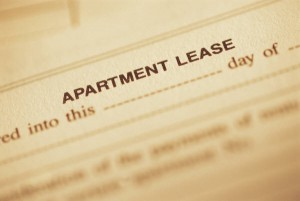Philadelphia Landlord Requirements
Philadelphia Landlord Requirements
A great client and friend of mine recently asked about the requirements for Philadelphia landlords. Greg Damis of Prudential Fox & Roach has a great post on his website detailing what is required. The entire document is reproduced below. Thanks Greg!
Philadelphia Landlord Requirements
The Philadelphia Landlord face a challenging set of rules and regulations. Below are my answers to some of the most frequently asked questions I hear.
Q: What is a Business Privilege Tax (BPT) Identification Number?
A: The Business Privilege Tax (BPT) is required of every person who wants to engage in business in Philadelphia. This includes the generation of rental income and is required for the Philadelphia Landlord. The BPT Identification number and license are issued on a lifetime basis for the fee of $300 (as of Jan.1, 2009). Once obtained, the BPT license can be uses for all business within the city. Applications and requirements can be downloaded from the city’s web site.
Q: When do you need a rental license?
A: Any property owner who rents his/her property to others needs to have a current rental license. The license is issued by The Philadelphia Department of Licenses and Inspections.
In order to get a rental license, property owners need the following: an active Business Privilege License number, an active Business Privilege Tax Identification number, and knowledge of the property and what type of license is needed. Owners will need a license for each rental property they have.
updated 12/20/11
Regarding a CONDOMINIUM UNIT:
As a result of a court action, legislation was adopted by City Council changing housing license requirements for multiple family condominium buildings in the City of Philadelphia. Individually owned condominium units which are rented, no longer are required to have a separate residential rental license. you only need you Business Priviledge License. Condominium Association or Condominium Management is requires to take out the rental license for all of the units in the building.
Q: What is a Certificate of Rental Suitability and when is it required?
A: All owners that rent property are required to obtain a Certificate of Suitability issued by the Department of Licenses and Inspections no more than sixty (60) days prior to a tenant moving in.
The certificate can be issued for properties that do not have critical code violations. The printed certificate will include the required owner’s attestations.
The following is An excerpt from the August 2011 HAPCO Newsletter — August 24, 2011
“Property owners after October 1, 2011 will be required to obtain a “Certificate of Rental Suitability” at the beginning of every new tenancy. The certificate, which is available on line, must be obtained no more that 60 days prior to the commencement of the lease. The owner is also required to provide the new tenant with a copy of the “City of Philadelphia Partners for Good Housing Handbook”.
In order to obtain the Certificate, the owner will be required to confirm that
Pursuant to the PA Commonwealth Court Order, no fee will be charged for issuance of the Rental Suitability Certificate. The Rental Suitability License can be obtained at phila.gov. On the left hand side of the page a link appears for Permits and Certificates, and then a link to Rental Suitability Certificate.
Violation appeals can be initiated with the Board Administrator at the Municipal Services Building, 1401 John F. Kennedy Boulevard.”
Q: When is a ‘Partners for Good Housing’ Handbook Needed?
A: The city has compiled a 21-page handbook that outlines minimum health, safety and maintenance standards for houses and apartments. The handbook should be given to new tenants upon their signing of a lease.
The Partners for Good Housing handbook is based on the Philadelphia Building code, and it outlines the responsibilities for both landlords and tenants.
Q: What is PGW’s Landlord Cooperation Program (LCP)?
A: Landlords can be held liable for tenants’ unpaid gas bills. To help protect owners against the placement of liens on their rental properties for unpaid tenant gas bills, the Greater Philadelphia Association of Realtors, the Homeowners Association of Philadelphia, Bob Elfant (Elfant Wissahickon Realtors), Mark Seidman, Greg Damis (2006 President, Greater Philadelphia Association of Realtors), Paul Cohen (Cohen & Wilwerth) and Philadelphia Gas Works set up the Landlord Cooperation Program in 2006.
Owners can visit PGW’s LCP site to register for the program. Once owners are registered and remain in a cooperative status, their residential rental property will not be liened during the term of the LCP. If owners are not registered, they can be liened for unpaid gas bills beginning Sept. 1, 2009.
(UPDATE: April 2010)… Various organizations are monitoring LCP registered properties and the L&I landlord database to make sure everyone is in compliance with the terms and conditions of LCP. If a landlord is not in compliance, he/she will be removed from LCP and its protections. PGW has the legal right to file liens against all properties, including residential rental properties, for unpaid gas bills. However, if a property owner registers for and fully cooperates in our LCP, he or she can receive lien protection for eligible tenant-occupied, residential rental property(s). In order to take advantage of the program, or for more information, please visit the PGW’s website at www.pgworks.com. Property owners are not eligible to register their own residences, properties for which the owner is or is legally required to be the customer of record, or non-residential properties. If you have questions, we’re here to help you, so email us at [email protected].
Q: What are the city’s requirements for smoke detectors and carbon monoxide detectors?
A: Philadelphia Code (Bill No. 192) states that smoke detectors are required in one- & two-family dwellings. It also establishes that the owners and occupants/tenants are responsible for upkeep and testing. Owner certifications of installation and operation are mandatory upon application and renewal of rental property licenses.
Upon the sale of a one- or two- family dwelling, the Seller needs to certify in writing to the Buyer that the required smoke detectors have been installed according to code. For the sale of a 3-plus unit building, there must be a system for the common area that operates on a secondary power source. For more information, please consult the Philadelphia Fire Code.
Philadelphia also recently passed an ordinance requiring carbon monoxide detectors in all one- & two-family dwellings. The law took effect Jan. 1, 2009, and it states that the alarms must be made by a nationally recognized laboratory and include detection and alarm devices. Owners and occupants/tenants are responsible for upkeep and testing.
Q: How do I get the scoop on the latest security deposit laws?
A: A security deposit is money which actually belongs to the tenant, but is held by the landlord for protection against damages or unpaid rent. The Pennsylvania Landlord Tenant Act places a limit on the amount of a security deposit that a landlord may charge.
After five years the landlord cannot increase a security deposit even though the monthly rent is increased. Problems and disputes can be directed to the Attorney General’s Bureau of Consumer Protection at 1-800-441-2555.
Q: How does the Federal Fair Housing Act effect me?
A: The Fair Housing Act of 1968 prohibits discrimination in the sale, rental, and financing of dwellings, and in other housing-related transactions, based on race, color, national origin, religion, sex, familial status (including children under the age of 18 living with parents or legal custodians, pregnant women, and people securing custody of children under the age of 18), and handicap (disability).
Property owners must adhere to the federal guidelines when renting property to prospective tenants.
Q: What are the essential documents to have for a residential lease in Philadelphia?
A: 1) Pennsylvania Residential lease, 2) ‘Protect Your Family From Lead in Your Home’ pamphlet, 3) ‘Mold, Moisture and Your Home’ pamphlet, 4) the ‘Partners for Good Housing’ handbook, 5) PGW Landlord/Tenant cooperation addendum.
Q: I received a letter from the Streets Department that states I have to file a Commercial Solid Waste and Recycling plan. What’s that?
A: A businesss located in Philadelphia must recycle, and you must prepare a plan for recycling to file with the Streets Department. The plan may be prepared and submitted online at the city’s website. In order to file a plan, you must have (1) a BRT number, (2) a recycling vendor’s information, (3) information about the owner or manager of your property’s business, and (4) the types of material that will be recycled. Violations or failure to implement the plan could result in a $500 fine.
Q. What should I know about Philadelphia Trash Regulations?
A: Philadelphia SWEEPS officers are becoming increasingly active and are issuing more and more tickets. Take note of the following: (1) If your trash is collected by the City of Philadelphia, trash cannot be put out until 7pm the night before trash day. There is now a $300 annual fee for all commercial properties utilizing the city for trash pickup. For more information on this fee, please contact the Streets Department Solid Resources Unit at 215-686-5090 or email [email protected] (2) If your business has contracted with a licensed trash/recycling hauler, you must have a Dumpster License for all waste and recycling containers used by the business AND an RFI Medallion attached to each dumpster or trash container. Call the Department of License and Inspections at 215-686-8686 for more information. “ Dumpster License Application – http://business.phila.gov/Documents/Licenses/Dumpster.pdf Dumpster Medallion FAQs – http://business.phila.gov/Documents/medallion_FAQ.pdf Medallion Attachment Instructions –http://business.phila.gov/Documents/medallion_attachment_instructions.pdf
Hopefully this post will help to clarify exactly what is required of the Philadelphia Landlord




